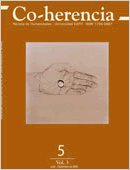On Artistic Freedom And Aesthetic Emancipation In Today’s Musical Composition
Main Article Content
Keywords
Mimesis, melody, prosody, instrumental music, root, harmonic series, cultures, emancipation, freedom, synchronic art, Syntax, language, acceptability, nationalisms.
Abstract
This text starts with the consideration of the origins and evolutions of Music under different lines in East and West. Then it discusses music universality from an anthropological, not a Eurocentric point of view. Universality that could be proved on a double ground: the presence of Music in all world cultures and the acoustic explanation. Later on, the text deals with the claim for the composer’s artistic freedom and aesthetic emancipation in order to choose or create scales and syntaxes, taking into account the listener’s receptivity. Finally, it discusses wheter music is a language or not and ends with a brief comment on nationalisms.
Downloads
References
Brelet, Giselle (1949) Le Temps Musical, Essai d’une Esthetique nouvelle de la Musique.Paris, PUF.
Fubini, Enrico (1973) Música y Lenguaje en la Estética contemporánea. Madrid, Alianza.
Levi-Strauss, Claude (1968) Lo crudo y lo cocido. México, Fondo de cultura económica.
Meyer, Leonard (1956) Emotion and Meaning in Music. Chicago, Chicago University Press.
Morris, Charles (2002) Fundamentos de la teoría de los signos. Buenos Aires, Paidós. Originalmente, Foundations of the theory of signs (1938).
